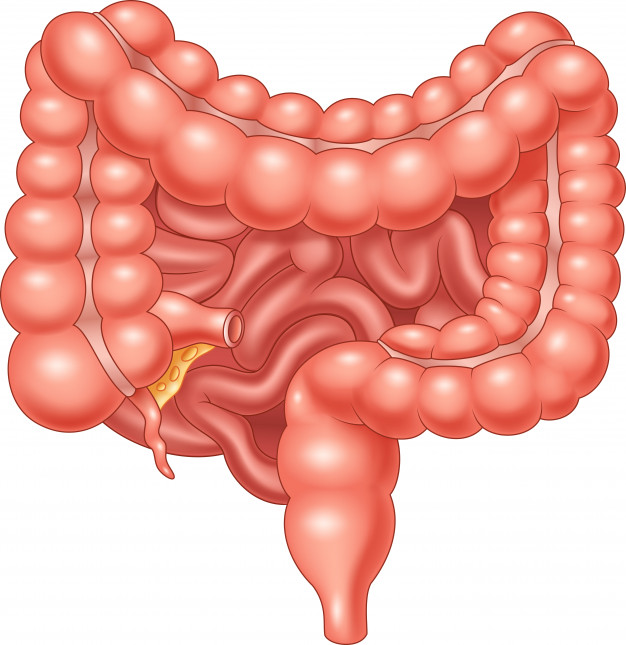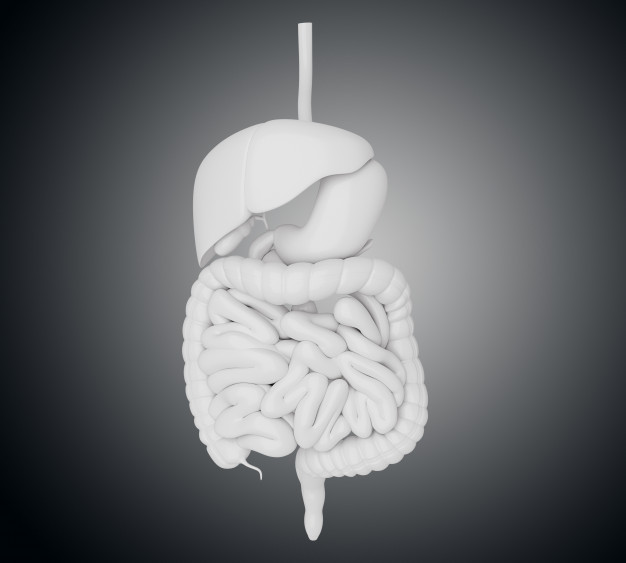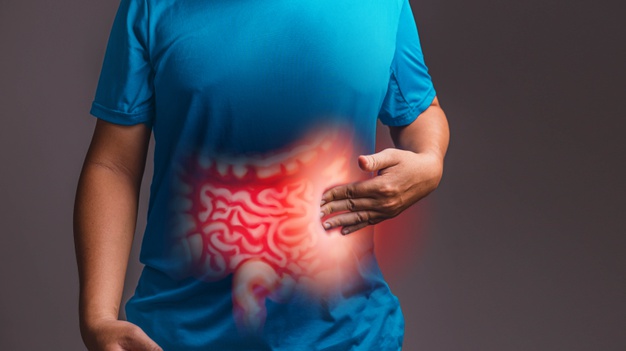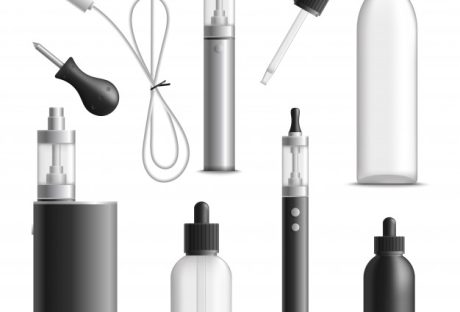Everyone experiences heartburn from time to time or has the occasional upset stomach. But for those who experience these symptoms more frequently, it could be a sign of long-term Gastrointestinal Conditions.
According to the National Institute of Diabetes and Digestive and Kidney Diseases, 60 to 70 million people in the U.S. are affected by gastrointestinal issues. But what exactly is a” gastrointestinal issue,” and what parts of your body can experience the impact?
Gastrointestinal Health 101
The gastrointestinal system gives your body what it needs to function. The system breaks down food, extracts nutrients from it, and converts these nutrients into energy. It also protects your body against harmful substances by blocking them from your bloodstream.
The gastrointestinal tract primarily consists of the following:
Esophagus:
A hollow tube running through the neck and chest that connects the mouth to the stomach. Muscles in the esophagus push food into the stomach.
Stomach:
A large organ that holds foods and breaks them down using enzymes and acids.
Liver:
The organ that filters toxins from the blood and produce bile, which further helps break down food into proteins, carbohydrates, and fats.
Gallbladder:
A sac-like organ that stores the bile the liver produces then releases it as necessary.
Pancreas:
An organ that produces enzymes like insulin, which aids in the breakdown of sugars.
Small intestine:
As the stomach passes along food, this organ starts breaking it down while absorbing the majority of its nutrients.
Large intestine:
This organ contains billions of bacteria that turn food into waste (feces). At this same time, the large intestines remove water and electrolytes from what is left of the food for your body’s use.
Rectum:
A small space at the end of the large intestine provides temporary storage for waste.
When you eat something, each of these organs plays a role. To kick off the process, saliva begins to break down food. With the help of other enzymes, food continues breaking down as your system propels it by muscular contractions through the digestive tract. This process is called peristalsis.
Gastrointestinal organs and their fluids exist in a delicate balance. Diet, stress, and illness can upset this balance and cause pain or discomfort.
Common Gastrointestinal Conditions and Disorders
There are a variety of common gastrointestinal (GI) disorders like constipation, diarrhea, and acid reflux. Though some Gastrointestinal Conditions are genetic and outside of your control, you can still prevent many complications or subdue symptoms by eating a balanced diet, practicing healthy bowel habits, and following the CDC guidelines for cancer screening.
Some common disorders—like celiac disease, gastroesophageal reflux disease, irritable bowel syndrome, lactose intolerance, and leaky gut syndrome—are generally manageable with proper care and direction from medical professionals. If you experience severe pain or think you may have a more serious condition, see your doctor as soon as possible.
1. Celiac Disease
Celiac disease is an immune response to gluten, a protein found in wheat, rye, and barley. People with this problem cannot eat food made from these substances because it triggers a response in their small intestine, which over time becomes inflamed and unable to absorb nutrients.
If you have celiac disease, you’ll feel sick after eating something with gluten. Symptoms include bloating and gas, abdominal pain, fatigue, and nausea. Though there’s presently no cure, most people who follow a strict gluten-free diet can reduce flare-ups and promote intestinal healing.
3. GERD
Gastroesophageal reflux disease (or GERD) is a condition where your stomach acid flows back into your esophagus, irritating the esophagus’s lining. It is essentially the same as acid reflux, except the symptoms are more intense and frequent.
Common symptoms include a burning sensation in your chest after eating, having difficulty swallowing, and feeling like there’s a lump in your throat. You may also regurgitate food or sour liquid. People with GERD often feel worse at night, which can cause other problems like a chronic cough, laryngitis, asthma, and disrupted sleep.
There are over-the-counter remedies such as antacids and H2 blockers, but more intense symptoms may require prescription medication. Lifestyle factors such as smoking, eating large meals, or eating late at night can aggravate GERD.
3. Irritable Bowel Syndrome
Irritable bowel syndrome (IBS) is a common GI disorder that affects the large intestine. If you have this chronic condition, you will feel abdominal pain, bloating, gas, diarrhea, and constipation.
While the exact cause of IBS is unknown, certain factors play a role. Someone with IBS may have abnormalities in their digestive system or may have had a bacterial or viral infection that left an overgrowth of bacteria in the intestines. Changes in gut microbes can also lead to IBS.
Though there is no cure for IBS, taking medications, and making lifestyle changes can alleviate the symptoms. For example, you can exercise regularly, eat smaller meals, and focus on minimizing stress. In terms of regulating your diet, you can try consuming more probiotics and limiting caffeine, dairy products, and spicy foods. Medicalprices.co.uk has a complete guide about IBS.
4. Lactose Intolerance
Lactose intolerant individuals cannot break down lactose, the natural sugar in milk. If you’re lactose intolerant, your small intestine doesn’t produce enough lactase (the enzyme) to digest lactose (the milk sugar). Undigested lactose then moves into your large intestine, where it interacts with the bacteria, causing bloating, gas, and diarrhea.
Aside from avoiding dairy products altogether, lactose intolerants can take over-the-counter lactase enzyme tablets that aid in dairy digestion.
5. Leaky Gut Syndrome
As part of the digestive tract, the intestines allow water and nutrients to pass through their walls while blocking harmful substances. The ease with which substances pass through the intestinal wall is called intestinal permeability. When this permeability becomes compromised, toxins and bacteria may escape from the intestines into the bloodstream.
This condition is called a leaky gut syndrome, and if left unchecked, it can cause inflammation throughout the body. Symptoms may include bloating, gas, food sensitivity, fatigue, and skin problems. Though more research needs to be conducted on this condition, a few probable causes include:
- Consuming too much sugar or alcohol
- Long term use of anti-inflammatory drugs like ibuprofen
- Deficiencies in vitamins A and D and zinc
- Chronic inflammation throughout the body
- Stress
- Bacterial imbalance in the intestines
- Yeast overgrowth in the digestive system
To reduce symptoms, you can work on improving your overall gut health. First, you can limit your carb intake, as harmful bacteria thrive on sugar. You can also increase the number of beneficial bacteria in your body by eating foods with probiotics such as yogurt, kimchi, and sauerkraut.
You may also want to consider powdered collagen protein supplements. Collagen is a naturally occurring protein that gives structure to connective tissues, ligaments, and skin. The protein also provides structure to blood vessels and may strengthen compromised intestinal walls.
Avoiding a Pain in the Gut
While some gastrointestinal conditions can be severe, other GI issues and symptoms are common and manageable with lifestyle changes. If you maintain a healthy diet with your unique gastrointestinal needs in mind, you can treat your symptoms and live free of gut pain.
- 6 Effective Ways to Improve Your Mental Health
- Why Water Filter is Important to Improve Your Health?
- Symptoms and Effects of Co-occurring Disorder on Human Health
- 10 healthy habits to improve your health





























